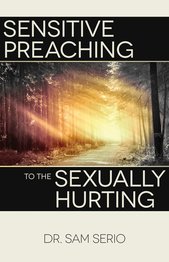 Review: Sensitive Preaching to the Sexually Hurting Summary: Sensitive Preaching to the Sexually Hurting walks preachers through a variety of topics related to human sexuality. Dr. Sam Serio offers practical suggestions and language to use while discussing these sensitive topics. Review: For six years, I served in a sexual abstinence program through my local pregnancy support center in upstate New York. In retrospect, we should have been named a sexual design program. So, I was very interested to read this book with my background biblical sexuality and my current role as a pastor. Serio explores sexual topics with an openness that’s needed in the Christian church. He covers the topics of Casual Sex, Abortion, Sexual Assault, Childhood Abuse, Same-Sex Attraction, and Sexless Marriage. His categories are helpful, and he highlights some topics that had not occurred to me. At the end of each topic, Serio gives text suggestions to talk about these individual topics. I did not find these terribly helpful. However, the main sections of the chapters are very helpful. He offers terms, phrases, and great insight on how to present these sexual issues to congregations in a gentle but biblically truthful way. My one major criticism with the book is the chapter on Same-Sex Attraction and Homosexuality. While I appreciate Serio’s balanced and loving concern for individuals, he puts too much emphasis on the parents as a root of same-sex attraction. He highlights four types of fractured parental relationships that lead to this type of attraction but fails to address what happens when none of these fractured relationships is present and a person still experiences same-sex attraction. Ultimately, I was surprised with how helpful I found this book. There are areas I disagree with his approach, but Serio offers pastors an image of gracious, biblical conversations from the pulpit. Find it on Amazon here. Find it on Kregel here. Rating: 4/5 Stars (I really liked it) Note: I received a physical copy of this book for free in exchange for an unbiased review.
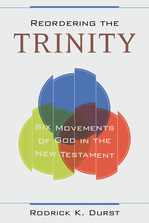 "Our math classes tell us 1+1+1=3, but 1x1x1=1. God is "the three times God." When you talk to Jesus, you are talking to God. When you talk with the Father, you are talking to God. And when you talk with the Holy Spirit, you are talking with God." - Rodrick K. Durst, Reordering the Trinity Summary: Recognizing the deep importance of the doctrine of the Trinty Rodrick K. Durst identifies six orders of the Trinitarian persons in the Scriptures and demonstrates what the biblical authors are emphasizing in these orders. Review: Reordering the Trinity focuses on historical, contemporary, and practical issues, but its main thrust is to identify the six orderings of the Trinitarian Persons, then interpret the significance behind these particular ordering. The orderings are as follows: 1. Father – Son – Spirit 2. Son – Spirit – Father 3. Son – Father – Spirit 4. Spirit – Father – Son 5. Father – Spirit – Son 6. Spirit – Son – Father I am indebted to Durst for pointing out these different orderings. While I have observed these differing orders in Scripture before, I never thought much of it. Durst argues throughout the book that these different orders actually communicate different things. The biblical authors very intentionally selected the order the Trinitarian Persons to communicate specific themes. For example, the classic “Father – Son – Spirit” order is what he calls “The Sending Triad.” It has a missional purpose behind it. The “Father – Spirit – Son” is what he calls “The Shaping Triad.” There is a spiritual formation process in this ordering. The data Durst provides is comprehensive. He explores each Bible passage in extensive detail. I think in general he’s onto something. Some of the specific passages are a bit of a stretch when it comes to Durst’s thematic categories. Largely, though, I found myself in general amazement seeing how the biblical authors (under the guidance of God the Holy Spirit) used these orders to convey God’s work in humanity and his church. I wish the practical side of this book was stronger. Durst is intentional at the end of the major chapters to offer “Sermon Starters”. He also has a closing practical section. These all contain helpful material to glean from, but I found the analysis sections more practical than the practical sections. Reordering the Trinity was extremely helpful to me. In my personal and professional life, I have seen a number of Christian leaders and organizations deemphasize the Trinity, or dismiss the doctrine altogether. This trend caused me to update some of my submission requirements on my podcast, and required other organizations I work with to do so as well. I have a deep affection for the Trinity. I have a deep desire to delve into the mysteries of the Father, Son, and Holy Spirit. This desire is coupled with an understanding that many of those mysteries will still remain mysterious. Durst has revealed something about the Trinity I have never seen before. As I wrote before, I am indebted to him. Rating: 4.5/5 (I Really Liked It) The Trinity is "riddled" with wonderful mysteries! Note: I received a physical copy of this book for free in exchange for an unbiased review.
“There are always great men, and they always need support,” said Haakon. 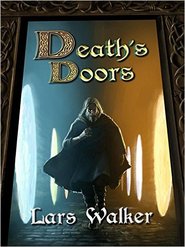 Summary: In the near future, suicide is a constitutional right. Tom Galloway is just an ordinary single parent, trying to keep his rebellious and depressed teenage daughter from going to the Happy Endings Clinic. If there's one thing he doesn't need, it's a tenth century Viking time traveler dropping into his world. But Tom is about to begin the adventure of his life, one that will change the whole world. Review: Lars Walker crafts a chilling dystopia in Death’s Doors. Unlike many contemporary stories with similar settings, this novel goes into the grim details of what this future-version of America looks like and why. Religion is heavily regulated so-as not to cause discomfort to others. Infants may be disposed. Autonomous persons, even children, can opt for physician assisted suicide. People will do anything to avoid pain. There are no heroes anymore. Everyone is looking for comfort. Greatness does not arise from comfort. And in this context, Walker utilizes an old speculative fiction device. He brings a man of the past into the present. I almost skipped over this book because of this plot point. I’ve seen it done too many times. Walker, however, turns the device on its head. He doesn’t bring a good man back to the present. He brings back Haakon, a tenth century Viking. Haakon hates Christians. He is brutal and violent. He treats women like objects to be won or used. Haakon isn’t a complete villain, though. He brings perspective into this comfort-obsessed dystopia. He is a complex character who I found myself simultaneously applauding and condemning. By coupling this Viking with our well-meaning but powerless protagonist the character dynamics become quite dramatic. Death’s Doors contains aspects of both science fiction and fantasy. I dare not say more than that, lest I ruin the plot. I found myself highlighting numerous passages in the book. Like C.S. Lewis I find Lars Walker quite quotable. Typically, I don’t go out of my way to notate fiction. I marked twenty-nine passages in this book. My only complaint is that the book is available only in an electronic edition. While I enjoy reading digitally, I also like to place great books on my bookshelf. Death’s Doors should sit right next to my Charles Williams collection. Even though the novel is a work of speculative fiction it is grounded in reality. Death’s Doors was so wonderfully crafted that I would love to sit down for a meal with Lars Walker someday just to pick his brain. I’d even be willing to eat Lutefisk to do so. Rating: 5/5 (I Loved It!) Find it here on Amazon. 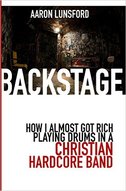
Summary: Aaron Lunsford, drummer for the indie Christian rock band As Cities Burn, writes a memoir following the band's pursuit of success, bitter failures, and difficult relationships.
Review: I have enjoyed As Cities Burn for a number of years now. In particular, Come Now Sleep and Hell or High Water. The brutal honesty of this group's lyrics resound with me. They are transparent with their spiritual struggles with Christ, as well as their struggles with the Church. Their instruments are the perfect vehicle to communicate this struggle. And then, in the midst of the difficult relationships, the lyrics and music explode the grace of God on the listener. We see a glimmer of the light of things hoped for. For me, As Cities Burn gives a pretty honest and typical portrayal of the Christian walk: Struggle. Struggle. Struggle. Beauty. Struggle. Beauty. Beauty. Beauty. Rest. Struggle. So I snatched up this memoir as soon as it came out. The book spends most of the time exploring the difficulties of touring, starting a band, and the interpersonal conflicts that arise as a result of it. Lunsford gives a chaotic glimpse into the lives of a bunch of (mostly) Christian guys trying to find an audience for their music. There is very little reference to their faith, or walk, but when Lunsford does go there he has a fair amount of criticism for Christians and himself. One poignant passage explains these young guys' dilemma: Each member of As Cities Burn differed greatly from one to the next in regards to spirituality and theology. Sure there was plenty of common ground, but no real way to all be 100% behind every single action, thought, or word spoken by any one member of the band [...]
As Cities Burn's work has moved me incredibly at times. And I think it's because these guys are doing the very difficult task of living out their imperfect faith within a church-culture that has largely encouraged believers to pretend to be perfect in their walk with Christ. I certainly don't agree with Lunsford in all areas of orthopraxy (right actions), but I do appreciate his honesty.
Backstage is rather vulgar (not terribly profane, though). This doesn't bother my literary sensibilities too much, but it certainly isn't for everyone. And there were points where the vulgarity muddied the flow of text and detracted from his narration. (Oh! And he offers one band-hijinks image I would have been happy to have gone to my grave without ever visualizing). Fans of the band will enjoy this fun and quick memoir. More than just a band book, though, voices like this are important in the Western Church these days. So much of our focus is on our actions as believers rather than the object of our belief, Jesus Christ. American Christians need to become much more honest disciples, who constantly point to their need for Jesus Christ. Lunsford does a great job in the honesty department. The need for Jesus is only dimly implied. Rating: 4/5 (I Really Liked It) Find it here on Amazon.
Watch one of my favorite moments from As Cities Burn:
No Joke! A Fun and challenging memoir.
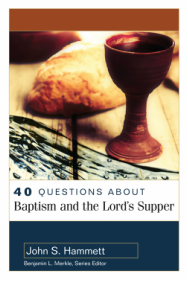 Summary: Dr. John S. Hammett explores the two ordinances of the Church, the Lord's Supper and Baptism, from a scholarly Baptist perspective. Review: As Hammett acknowledges in the beginning of the book, there is an irony found in the rites of the Lord's Supper and Baptism. Whereas these practices should bring about Christian unity, they have historically caused division among the universal Church. 40 Questions About Baptism and the Lord's Supper does not try to reunify the Church, but it does spend quite a bit of time offering presentation of the various perspectives rather than an ongoing polemic against every non-Baptist understanding. I found this refreshing. Additionally, Hammett explores the terms for these rites (i.e. ordinances or sacraments) with a balanced perspective. Now, being an ordained Southern Baptist pastor, I generally find myself in agreement with Hammett's conclusions. I'm not a hard-nosed Baptist, though. My theological convictions don't arise from historical Baptist roots. And because of this, I found Hammett's approach to the viewpoints on Baptism and the Lord's Supper intellectually and biblically honest. I never got the sense that Hammett was out to prove the Baptist viewpoint, and demolish the Catholic, Lutheran and Reformed theologies. On the contrary, Hammett approached the rites looking for as much common ground as possible, and only offered his evaluations after the common ground was affirmed. I found the following questions of particular usefulness: - Are Baptism and the Lord's Supper Sacraments or Ordinances? - Is Baptism a Divine Means of Grace or a Human Act of Obedience? - What Is The Correct Term for [the Lord's Supper]? - What Is the Meaning of the Lord's Supper? - In What Sense Is Christ Present in the Lord's Supper? One last note, I began reading this book while waiting to have my tonsils removed and assumed during my recovery I would turn toward a more simple form of leisure. I returned to this book however. While Hammett is quite scholarly in his presentation, he's also very enjoyable to read. Rating: 5/5 (I loved it) Find it at Kregel here. Find it at Amazon here. Azrael Batman has my tonsils in a jar somewhere! Note: I received a physical copy of this book for free in exchange for an unbiased review.
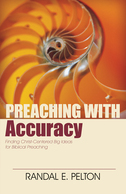 Summary: Randal E. Pelton presents a concise textbook for "Big Idea" preaching, which focuses on connecting the big idea to Christ-Centered sermons. Review: In general, I agree with Pelton's preaching philosophy. I am a "Big Idea" preacher from the school of Haddon Robinson. Much of Pelton's book interacts with Robinson's philosophy of preaching, and like minded persons. He uses slightly different terminology, but at its core (or big idea) it flows from that same school of thought. For this reason alone, I must commend it as a solid work on homiletics. The book itself, however, is conflicted with what it wants to accomplish. On the one hand, it wants to present itself as an introductory, one-stop shop, for preaching sermons from the text. But on the other, it is trying to make an argument for bringing Christ into every sermon and how to do that. The book is fairly short, but in comparison to the other sections the chapter on "Canonical Big Ideas" is rather long. But it is too short to make a winsome argument, or equip the homiletician with the various options of Christ-centered preaching that Pelton offers. The book is built off of the "Big Idea" preaching philosophy, and adds onto it this Christ-focused concept of a "Canonical Big Idea." There is simply not enough time spent on this concept, though. In this extended chapter Pelton juggles the tasks of arguing the need for this step, while simultaneously trying to teach how to do this. He doesn't quite succeed in either. I would like to see his thoughts on this "Canonical Big Idea" presented in a longer work on its own. There just didn't seem to be the space to present what needed to be presented. Finally, Preaching with Accuracy felt much more abstract than a book like this should feel. There certainly needs to be a philosophy presented, but the suggested big ideas, and sermon help never felt concrete. I looked at the suggested big ideas and without thinking began working on them to simplify their wording. To move them to a more concrete place. So, while I agree with Pelton's preaching philosophy overall, I feel this book had dual foci which shifted the attention away from the concept of "Canonical Big Ideas" Pelton wanted to present. Rating: 3/5 (I Liked It) Find it at Kregel here. Find it at Amazon here. You know the Qwaridians beat-up Superman, right? Note: I received a physical copy of this book for free in exchange for an unbiased review.
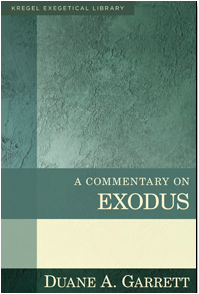 Summary: Dr. Duane A. Garrett analyzes the entirety of the book of Exodus in the latest volume of the Kregel Exegetical Library. Review: While I consider myself a theologian, whenever I approach a commentary I first ask "How helpful will this be for sermon preparation?" I have shelves filled with massive tomes of theological data on books of the Bible. Unfortunately, though, scholarly information does not always translate into helpfulness during the daily task of preparing a sermon. Conversely, some commentaries focus so much on the application that they offer little insight to the original meaning of the text. A cursory look at Garrett's A Commentary on Exodus initially led me to think this would be a commentary filled with technical data that was so extensive it would be too unwieldy to use as a weekly sermon aid. After I began reading it, though, I'm glad to report my first impression was wrong. The introduction in the commentary is incredibly detailed. This is, of course, helpful for scholars, but not for my purposes as a pastor. In the introduction I received more data and understanding on the overall history and development of Egypt and her dynasties. Garrett gave readers an extended look at the dating options for the book. And while these topics are interesting, they can become exhausting. Fortunately, the commentary itself is incredibly helpful. The data is laid out in a logical order, which allows the reader to spend time (or skip over) areas of interest. For example, Garrett opens the sections with a translation of the text, complete with extensive footnotes. I can see certain texts might cause me to spend time in those translations. Most often, though, I will skip over them and head to other areas. I like Garrett's exegesis style. his sentences are concise, but filled with information. He packs quite a bit of data into a small space. He also rightly exegesis the meaning of the text to the original audience, but then will help New Testament believers understand how this text informs (and transforms) their walk with Christ. Dr. Garrett also inserts appropriate excursuses throughout the commentary. I particularly enjoyed the excursus on why the ten plagues were not each a direct attack on specific, individual Egyptian gods (but were collectively an attack on all of Egypt's gods). His handling of the "hardening of Pharaoh's heart" difficulty was also very informing. When the time comes to preach through Exodus, I am looking forward to utilizing this wonderful tool. Rating: 5/5 (I loved it) Find it at Kregel here. Find it at Amazon here. Cesar Romero likes it! Note: I received a physical copy of this book for free in exchange for an unbiased review.
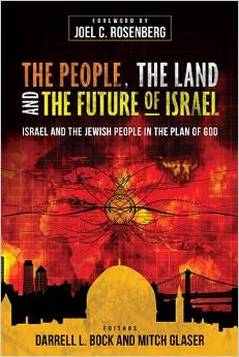 Summary: The People, The Land, and the Future of Israel is a series of seventeen essays exploring the Jewish people, and the land of Israel within God's plan for the world. The essays survey the entirety of the Bible text and also explores issues of interpretation and historical understandings of the Jewish people within the Church. Review: In the interest of full disclosure, I went into this book as a progressive dispensationalist, so I fully expected to find myself in agreement with much of what was said in this book. Not only did I find myself agreeing with the vast majority of this book, but most of the essays filled in the gaps of my knowledge. My hat is off to Darrell L. Bock and Mitch Glaser's editorial skills. The book follows a natural progression and for the most part, every single essay rises to a rather high scholarly level. The People, The Land, and the Future of Israel, coincides with a 2013 conference of the same name. In fact, each chapter features multiple "QR codes" and website links to video presentations and testimonies from the conference. This makes the incredibly robust book even more informative. The essays are separated into four categories: Hebrew Scriptures; New Testament; Hermeneutics, Theology and Church History; Practical Theology. I appreciated this grouping because it tells a narrative as the data from the Torah through the present day is examined. Over and over Israel and the Jewish people are affirmed throughout the Scriptures as God's covenant people. The Church has not replaced Israel - even though there have been long periods of time where believers thought this to be true. Additionally, the authors and editors are careful to avoid losing focus on the biblical narrative. Over and over again, The People and The Land are portrayed as chosen because of God's character. Because of God's faithfulness to his people. Even in a scholarly context, it is beautiful to see God's unconditional hesed portrayed. Some of the essays are more interesting than others. Some are more engaging. A few fell flat. Overall, The People, The Land, and the Future of Israel is a great resource for understanding Israel's central place in God's plan... both in the past and the future. Rating: 4.5/5 (I loved it) Find it at Kregel here. Find it at Amazon here. Alfred Approved! Note: I received a physical copy of this book for free in exchange for an unbiased review.
 Summary: Nineteen year old Monica awakens after a devastating car crash, only to discover she is now thirty-eight, she has spent almost two decades in a coma, and life moved on without her. Review: Admittedly, this is not a go-to film for me. In my limited time I will typically seek out a speculative film that I've missed over the last two years. Leaving Limbo is great, though. It's a micro-budget film. The screenplay is based off a stage play, which means the entire film is character driven. Give me a film like this over a million exploding space aliens any day. (Or the latest Left Behind offering.) Because of the limitations of the budget, the characters must become central, and they really do in Leaving Limbo. I cared about most of them, and wanted to follow their journeys. The film is not perfect, though. Some of the comedic beats were off just enough to rob the scenes of the intended humor. The opening "back in the 80's" scenes did their best to "de-age" the actors, but the lack of budget shows clearly here. And while I found the Christian themes to be well inserted into the story, there were a couple of impromptu Bible studies between Monica's dad and niece that just felt painfully forced. Other than these issue, the film is quite wonderful. Most of the acting, particularly by Mandy Brown, is top notch. The musical score fits nicely into the film. It neither underwhelms, nor forces itself into the narrative. The music simply heightens the emotion of the film, as any good score should. The story itself has some predictable elements, but also has some twists and turns to keep the audience guessing. Overall, I liked this film and I'm happy to support it. We need more character driven films like this. We need more Christian-themed films that explore the quiet but painful moments in life. Rating: 4/5 (I Really Liked It) Find out more about the film here. |
Categories
All
Blog Roll
Breakpoint Archives
November 2023
|
|
|

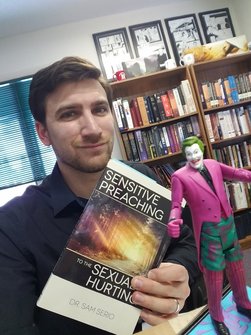
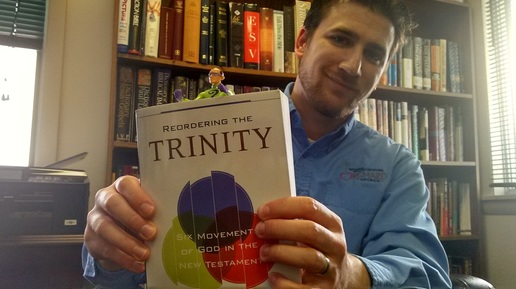
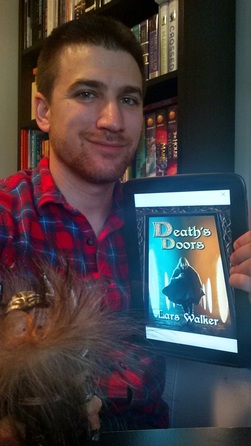
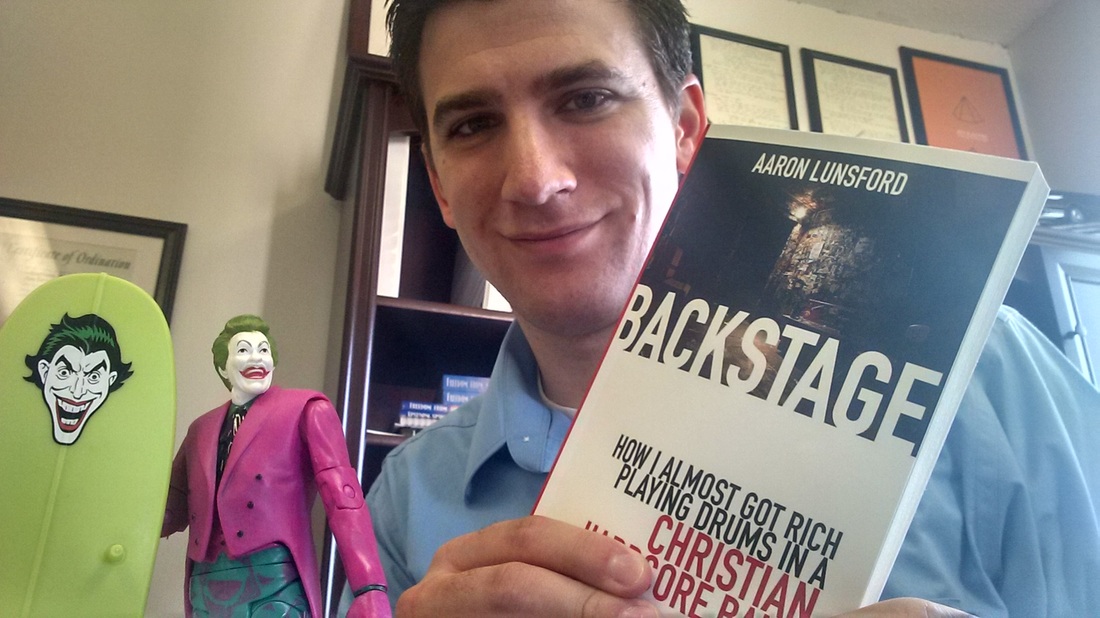

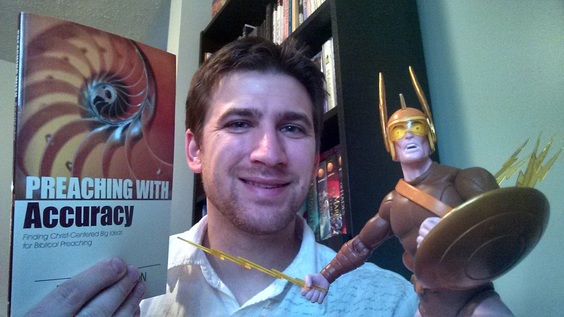
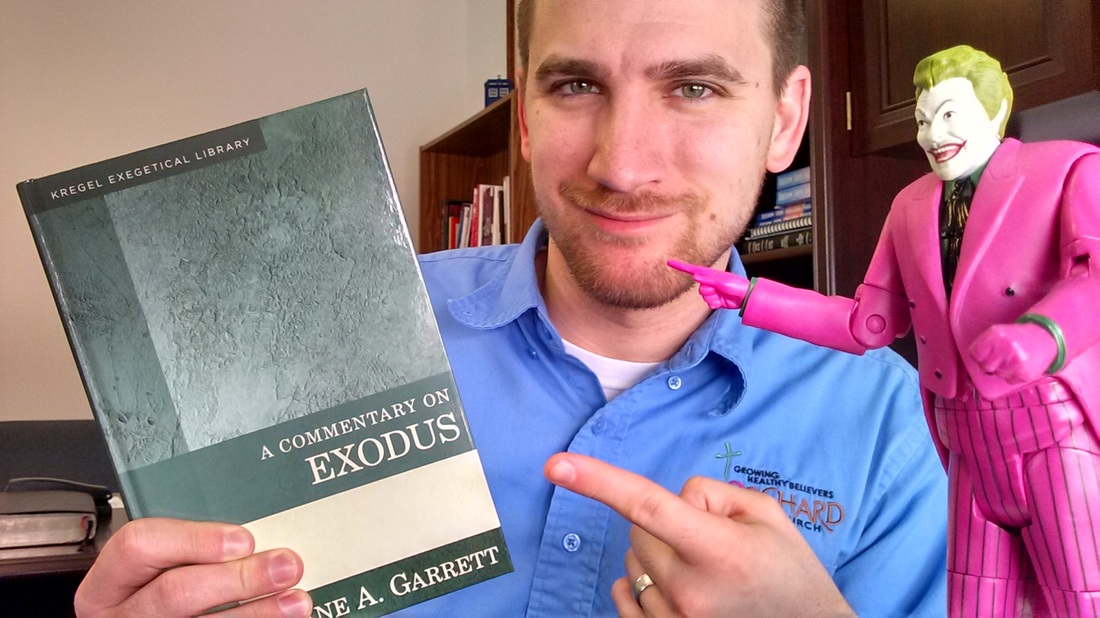
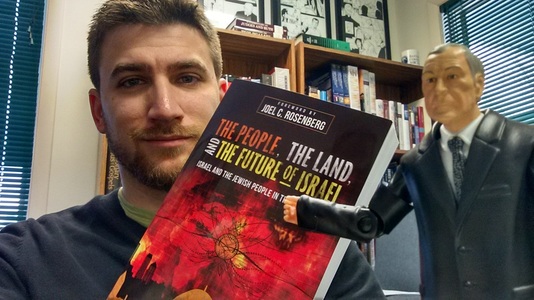

 RSS Feed
RSS Feed
